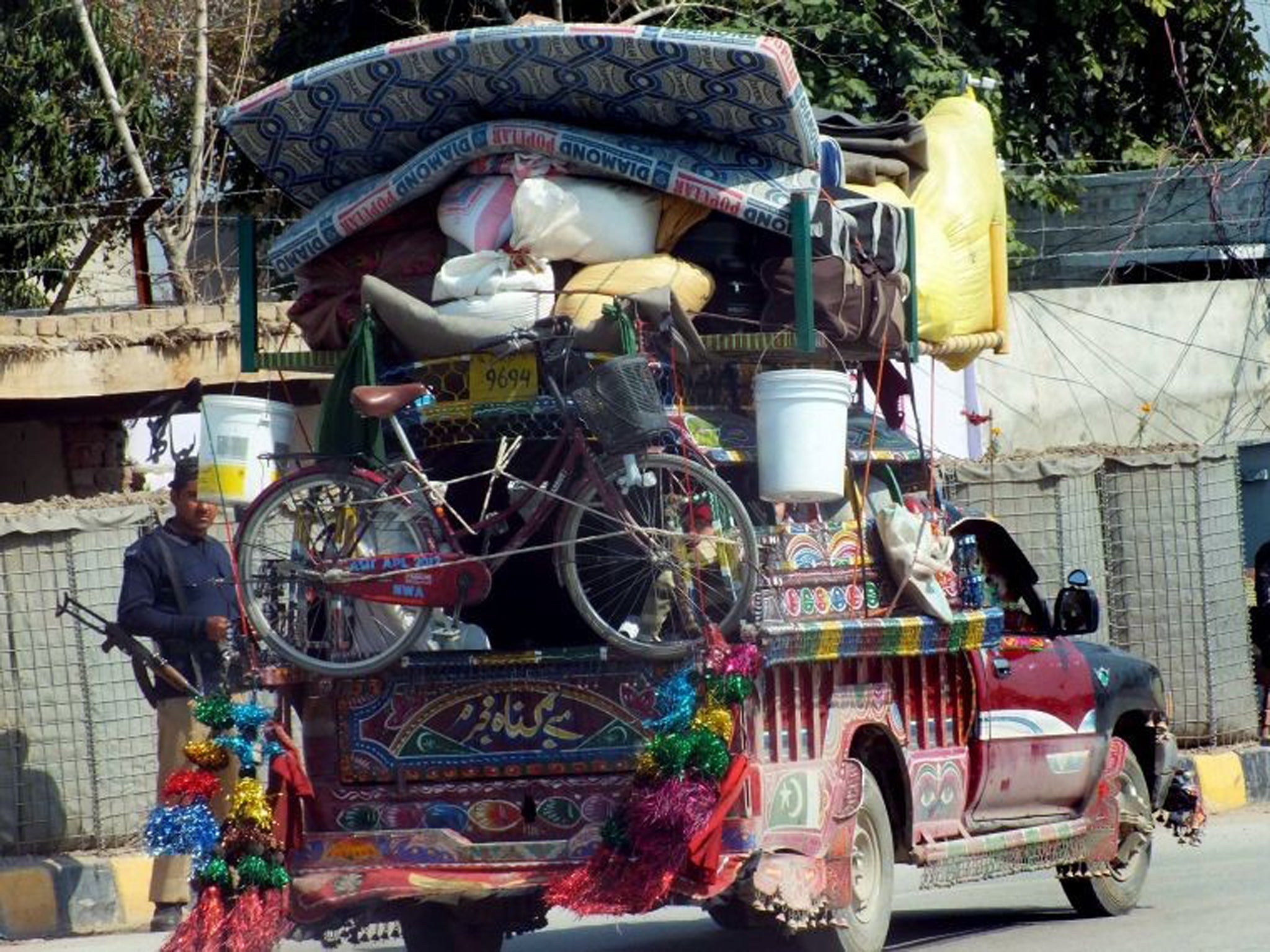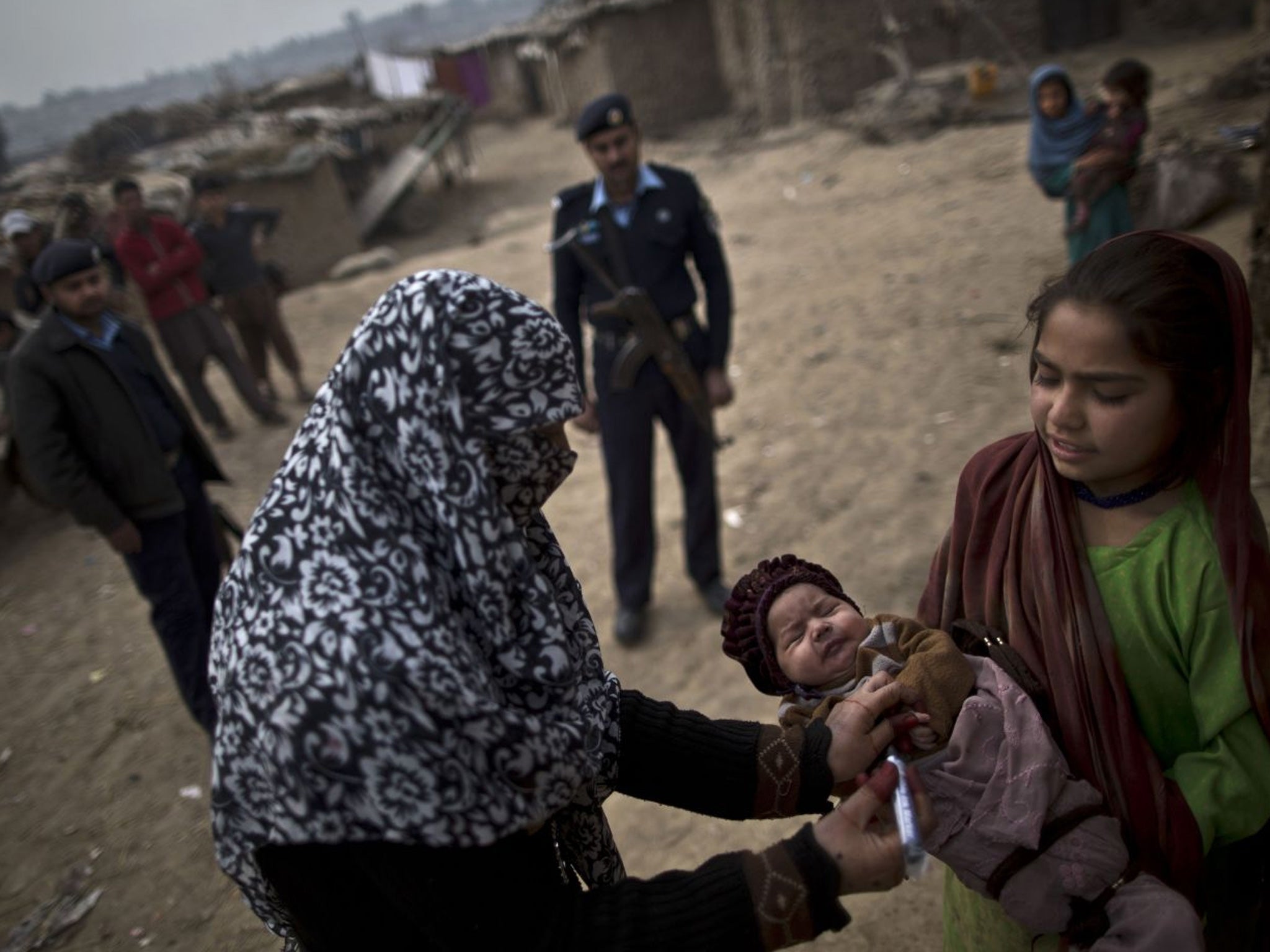Taliban calls for truce in Pakistan on day polio workers are attacked
Despite latest attack on medical workers and soldiers, government agrees not to mount offensive during month-long ceasefire

The Pakistan Taliban has announced a month-long ceasefire in order to try and revive stalled peace talks after reportedly being told the government would not mount operations against it. It came as at least 12 people were killed in an attack on polio workers.
A Taliban spokesman said the government of Prime Minister Nawaz Sharif had made clear that it would not be targeted in military operations. There has been mounting speculation Pakistan’s army was poised to launch a major operation in North Waziristan after a series of air raids on militant targets.
“The senior leadership of the Taliban advises all subgroups to respect the Taliban’s call for a ceasefire and abide by it and completely refrain from all jihadi activities in this time period,” spokesman Shahidullah Shahid said in a statement, according to the Reuters news agency.
Mr Sharif was elected last summer following a campaign during which he said he supported talks with the Taliban as part of a broader peace settlement. But initial exchanges between representatives for both sides that began on 6 February broke down after militants in the Mohmand area announced that they had executed 23 troops in revenge for the killing of their fighters.
In the last few weeks, jets and helicopters gunships have been pounding targets in North Waziristan. Thousands of people have been pouring out of the area in anticipation of a full-scale operation.
How significant, or lasting, the ceasefire announcement proves to be, will only become clear in the coming days. While a representative for the government welcomed the move, others were more sceptical.
“Historically, the Taliban have only used ceasefire announcements to gain time or for propaganda purposes. These are people with a belief system that is inherently opposed to compromise and modernity,” Husain Haqqani, a former Pakistani envoy to Washington told the Independent on Sunday. “Anyone in their ranks who genuinely compromises is labeled a traitor and becomes a target himself. I doubt if the ceasefire will hold.”
The announcement by the Taliban came as at least 12 people were killed in a series of bomb blasts targeting polio vaccination workers in the north-west. Among those killed were 11 paramilitary troops and a young boy.

The devices were detonated in Lashora, around 20 miles southwest of the city of Peshawar in Khyber Pakhtunkhwa province. While full details had yet to emerge last night, one report said an initial explosion injured several people and that the 11 troops were killed when they went to help those hurt and a second device was set off.
Nobody immediately claimed responsibility for the attack. But polio workers have been repeatedly targeted and a number of militant groups have made clear their opposition to the vaccination workers. Many claim the vaccination programmes are part of a Western-backed scheme to sterilise Muslims.
“This is the most serious challenge for polio eradication,” said Dr Rana Safdar, Pakistan’s former national polio coordinator. “We used to think the problem of attacks was restricted to certain high-risk areas. But now are seeing that this can happen any where and at any time. We cannot provide security everywhere.”
Along with Afghanistan and Nigeria, Pakistan is one of just three nations where polio remains endemic. There have also been new outbreaks in Somalia and Syria. By contrast, India, which once suffered the most from polio, recently celebrated being three years without a confirmed case.
Of the three countries where it is endemic, only Pakistan saw an increase in cases. Last year a total of 91 cases were reported, compared with 58 in 2012. The World Health Organisation said 90 per cent of Pakistan’s cases were genetically linked to Peshawar.
What’s more, the disease is spreading beyond Pakistan’s borders. Last November, the WHO revealed that strain of polio that had broken out in Syria had originated in Pakistan.
Polio vaccination workers in Pakistan, most of them women, have been repeatedly targeted in Pakistan, apparently by the Taliban. The militants have prevented polio workers reaching large swathes of the remote tribal areas that border Afghanistan.
Hundreds of thousands of youngsters have missed out on getting the vaccine. Suspicion about polio workers got markedly worse after the 2011 US operation to locate and kill Osama Bin Laden. In the aftermath of the operation it emerged the CIA had recruited a Pakistani doctor to organise a fake vaccination drive to try and obtain a DNA sample from the children living inside the al-Qa’ida leader’s Abbottabad compound.
The doctor, Shakil Afridi, was later charged with treason and sentenced to jail for 33 years. A court has ordered a retrial and the West has been pushing Pakistan to release the doctor.
Join our commenting forum
Join thought-provoking conversations, follow other Independent readers and see their replies
Comments
Bookmark popover
Removed from bookmarks